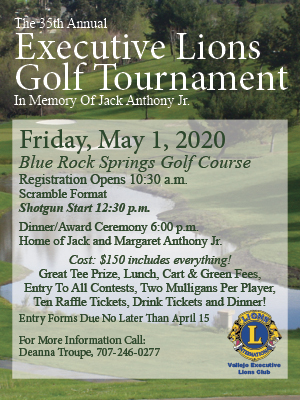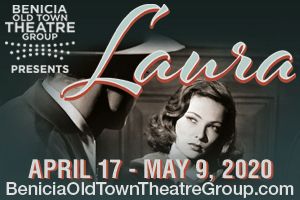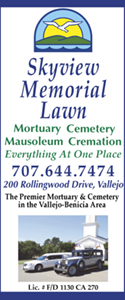The world seems infatuated with fly-by-night pop stars that rise from the phenomenon of viral YouTube videos, iTunes plays, and reality television shows like American Idol, where rising stars are on a short list for fame and fortune, but not necessarily for sustainable success. A large majority of modern-day music acts often take 2-5 year hiatuses between releasing new albums and touring, while often failing to meet or beat expectations by fans and record companies. Few music acts dedicate attention towards constantly touring. Even fewer artists are given the recognition and distinction of being “Legendary.”
At present, only one American music act has beaten all odds, and withstood the tests of time, by constantly touring for more than 40 years. A rock band that has survived the untimely deaths of not one, but two band members. A rock band that has cast some of the highest-ranking guitarists of all time, according to Rolling Stone Magazine. A rock band that beat its demons. A rock band that has written the script on sustaining long-term success and relevance and led by one of rock ’n’ roll’s biggest and brightest star. And a star who has clocked in 45 years with his primary band, in addition to 41 years with his solo band that ultimately yields him a legendary status in music history. However, it’s not the amount of time that makes an act legendary but more so – how the time is used.
Back where it all begins…nearly 50 years ago, Gregg Allman graduates Valedictorian of his high school class and focuses toward a career in dentistry. Duane Allman, Gregg’s older brother/supernatural guitarist, ends up changing the course of Gregg’s life by asking him to become a full-time musician alongside himself and leave dentistry on the back burner. A young Gregg Allman decides to give music his undivided attention and the two brothers set forth to perform in different bands that take them from Daytona to Los Angeles to Muscle Shoals and back to where it all begins – Florida, namely Jacksonville, Florida where in 1969 the two brothers try their hands on somewhat of an experimental band with songs written and influenced by Southern musicians’ lifestyles, while heavily laced with blues of the 3 Kings: Freddy King, Albert King and B.B. King. The new band is formed and led by brothers Gregg and Duane Allman who aptly names the band “The Allman Brothers Band.”
Duane Allman’s vision, drive, connections and work ethic quickly brings vast success to The Allman Brothers Band, and as the fame and fortune arrives, the misfortunes follow. Duane Allman dies in a tragic motorcycle accident in 1971. A year later, bass player Berry Oakley also dies in a motorcycle accident, putting the band at a crossroads of crossroads toward their future. Gregg Allman resorts to chemical dependencies to cope with his brother’s death and loses focus. By 1972, The Allman Brothers Band releases its 3rd album, Eat a Peach, which becomes a Platinum Record. Guitarist Dickey Betts begins to lead the band back on track and in 1973 a new album entitled Brothers and Sisters is released with a country inspired song called “Ramblin’ Man.” Written and sung by Dickey Betts, “Ramblin’ Man” reaches #2 on the Billboard Hot 100 and the album quickly becomes an accredited Platinum Record, giving Gregg Allman and The Allman Brothers Band inspiration to remain the course and sustain Duane’s vision.
More than 40 years pass since the release of “Ramblin’ Man” and in the interim, between the past to present, Gregg Allman is credited with releasing more than 12 studio albums with the Allman Brothers Band, 11 solo albums, 7 live albums and numerous compilation and retrospective albums. An impressive number of albums reach platinum (3) and gold (3), and a total of 4 albums visit the US Top 10 Album Pop Charts with Brothers and Sisters reaching #1 in 1973. As Gregg evolves to adopt Duane’s vision as his own, he focuses to heavily tour when the band is collectively healthy to do so. By 1995, The Allman Brothers Band is inducted into the Rock And Roll Hall of Fame. With the passing of each year comes another album release, another award being earned, some changes in the guitarist line up are tweaked, refined or corrected by Gregg Allman; by 2012 Gregg’s autobiography is released and in 2013 Hollywood opts to invest in a motion film featuring Gregg Allman’s life.
Now, it is May 2014 and The Gregg Allman Band is playing at Napa’s Uptown Theater. My limo pulls up to the box office where fans are flocking into the small, intimate theatre that seats only 800 people. “VIP Guest List?” asks an Uptown Theatre attendant. “Media,” I reply while providing my name. Immediately my will-call package is procured. My date and I walk into the lobby where common discussions among the circles of fans are heard toward the reality that Gregg Allman is retiring from The Allman Brothers Band, perhaps even touring all together. “This could really be the last time we get a chance to see Gregg Allman perform in Northern California,” says a fan wearing a San Jose Sharks jersey. Settling into the lobby, the merchandising booth has a line larger than the concession stand where another fan was enjoying a beer and stating facts, dates, and stats of the best live performances that he has seen or heard of The Allman Brothers Band.
Exiting the lobby and into the seating area, the architecture and design of Napa’s Uptown Theatre furnish an ornate, vintage setting with tranquil overtones that set an inviting and intimate energy throughout the theatre. As the houselights fade, a local opening act takes the stage, performing an acoustic set list. As the trio of acoustic musicians finish their set and exit (stage right) the audience begins to chant “GREGG ALLMAN! GREGG ALLMAN! GREGG ALLMAN!…” the stage is dark until shadows begin to move within the darkness, the decibel level skyrockets as a familiar voice says “Hey Napa – How Y’all Doin Tonight?” The incendiary reaction from the crowd cues the guitar, drums and bass to fire off the trademarked rudiments and riffs of “Statesboro Blues.”
Amazingly the stage is still dark until a solitary, blue-hued spotlight breaches across the theatre to shine on 66-year-old Gregg Allman as he sings the first words to the song with “….Wake up momma…Turn your lamp down low.” The crowd stands up and applauds, nearly in sync. A three-piece brass section is first seen, back and center stage on an elevated platform led by horns player, Jay Collins. Fellow Allman Brother Marc Quinones (percussion) graces the stage along with an additional keys player, Ben Stivers, who is set up extreme right of the stage and directly opposite (extreme left) is Gregg Allman who plays a B-3 Hammond Organ. Center stage there is only one guitarist, Scott Sharrard, and bass player Ron Johnson. The 9th member of the band is drummer, Steve Potts. The Gregg Allman Band has a 40-year history and often rotates musicians. A short and best description of the GAB is a simplified, refined and lighter Allman Brothers Band that is designed to appease smaller audiences and venues versus arena or amphitheater concerts. The band executes their first song tightly with a hollow-body lead guitar (the guitar of choice for all 3 Kings) providing a saucy blues tone.
The natural acoustics within the Napa Theatre are paired with an excellent sound tech crew yielding the highest quality in concert audio sound that is meticulously balanced. Gregg Allman sounds stronger than ever and the crowd reacts with louder applause one song after the next as the Gregg Allman Band covers classics such as: “Melissa,” “Ain’t Wasting Time No More,” “Midnight Rider” as well as more complex and rare songs such as: “Dreams,” “Please Call Home” and “Les Bres in A Minor.” Any speculation that Gregg Allman’s health might be a reason for retirement is now hearsay. Two hours fly by in twenty minutes. The music stops and the crowd is restless. The energy shifts from awestruck to disbelief as the synergy among fans are sensing that this might be a final farewell and so the encore applause grows louder than a Super Bowl stadium as the audience chants: “GREG ALLMAN! GREGG ALLMAN! GREGG ALLMAN!” until once again the music starts. Allman finishes the show with “One Way Out” and I too catch the denial virus from the crowd and somewhat fade out in deep thought telling myself this cannot be the last time I’ll see a live Gregg Allman show. My date breaks my trance as she says, “I just can’t believe this is the last time we’ll see Greg Allman.” I glance at her and think how surreal the moment is and tune my attention back onto the stage where Allman caps off the final song with vocals that seem carbon copy to the studio version. “…It just might just happen to be your man….Well it just might be your man. Mmmm, mmmm, mmmm, mmmm, mmmm. Oh it just might be your man….Oh baby I just – – – – don’t – – – – know.” The band executes a sultry outro as the entire audience rises for a standing ovation. The performance exceeds expectations.
Exiting the theatre toward the box office we enter into our limo and engage in the topic of coming to terms regarding Gregg Allman’s retirement from touring. My phone rings as I’m expecting a call from one of Napa’s most historical vineyards, Mayacamas (since 1889) who have agreed to answer a question: “If Gregg Allman could be compared to one of Mayacamas’s vintage wines, which one would it be and why?” Pleasantries are exchanged and I provide a recap of highlights of the concert as I interview Mayacamas Vineyard’s Braiden Albrecht who is well versed in vintage wines and is also an Allman Brothers Band fan.
“This question is so interesting,” says Braiden. “If Gregg Allman could be compared to one of our wines, we must factor an aging process and evaluate rarity. In doing so, the wine of choice is a vintage Mayacamas 1972 Cabernet Sauvignon, which coincidentally is also the same year that Eat a Peach was released. The 1972 vintage Mayacamas Cab offers rugged, mountain tannins and high acidity that gives it a strong, full bodied, earthy, dark chocolate, black cherry, tobacco impression on the palate. Due to its short supply, and ultra-extreme rarity, the 1972 Mayacamas Cabernet Sauvignon is not for sale and has been reserved in our private library.”
“Fascinating how Mayacamas opts to privately reserve its stock of vintage 1972 Cabernet Sauvignon,” I reply. “And in doing so preserves it in time because it is such an extraordinary production.” The night concludes by respecting Gregg Allman’s decision to retire from touring after 45 years, at a time where 700+ reviews on TicketMaster.com have given him 4.5 stars out of 5 stars, at a time when his voice sounds more epic and stronger than ever before, at a time where his autobiography has had worldwide critical acclaim, at a time where Hollywood has invested in a Gregg Allman motion film, at a time when a Midnight Rider themed GEICO Insurance commercial frequents primetime television, at a time where he is healthy, at a time where Gregg Allman and both his bands are still relevant and in great demand … At a time where the legend and legacy of Gregg Allman – similar to a vintage Mayacamas 1972 Cabernet Sauvignon—has aged … to perfection.
Local Happenings at Uptown Music Theatre: www.UptownTheatreNapa.com
Local Happenings with The Allman Step Brothers Band: www.AllmanStepBrothers.Com
 Moe Montana is a Private Equities Asset Manager by day and features freelancer in his spare time having written features on Luxury Lifestyles, Arts/Entertainment and Investment Finance topics.
Moe Montana is a Private Equities Asset Manager by day and features freelancer in his spare time having written features on Luxury Lifestyles, Arts/Entertainment and Investment Finance topics.
Some of Moe’s favorite clips of Gregg and the band Past & Present














































